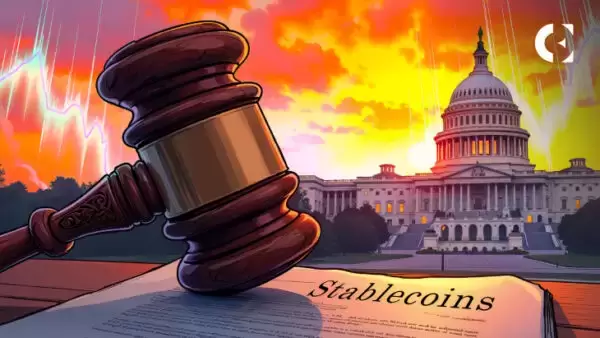 |
|
 |
|
 |
|
 |
|
 |
|
 |
|
 |
|
 |
|
 |
|
 |
|
 |
|
 |
|
 |
|
 |
|
 |
|
Cryptocurrency News Articles
Quantum Computing: A Looming Threat to Blockchain Security
May 20, 2024 at 11:45 pm
Quantum computing poses a significant threat to blockchain security, according to Professor Massimiliano Sala. Currently, blockchain encryption relies on mathematical problems that classical computers find difficult to solve, but quantum computers could potentially break these encryptions, rendering digital signatures and blockchain assets vulnerable. Sala emphasizes the need for "Q-day" preparedness, calling for the replacement of current encryption methods with quantum-resistant counterparts and the development of post-quantum cryptographic algorithms. Global initiatives and academic programs are working to address these threats, including the establishment of quantum-safe cryptography standards and the training of cryptographers in emerging quantum-resistant methods.

Quantum Computing: A Looming Threat to Blockchain Security
In the realm of technology, quantum computing has emerged as a formidable force, capable of revolutionizing various industries. However, for Bitcoin enthusiasts and blockchain users, it poses a chilling threat that necessitates urgent action. Professor Massimiliano Sala, a mathematician from the University of Trento, has issued a dire warning about the potential consequences of quantum computing on blockchain security.
Sala's concerns center on the concept of "Q-day" - a hypothetical moment when advancements in quantum computing will render current encryption methods obsolete. Algorithms that safeguard digital signatures, the cornerstone of blockchain security, rely on mathematical problems that are exceedingly complex for classical computers to solve. However, quantum computers could effortlessly unravel these algorithms, unleashing a "blockchain apocalypse" that would compromise user assets.
"Quantum computers could effortlessly solve problems foundational to digital signatures, undermining mechanisms that protect users' assets," Sala cautions in a recent lecture hosted by Ripple.
The urgency of this threat is heightened by the rapid advancements in quantum computing research at academic and commercial laboratories worldwide. Major institutions such as MIT, Google, IBM, and universities across the globe are making significant breakthroughs. The proliferation of powerful quantum computers could spell disaster for the cryptographic underpinnings of cryptocurrencies like Bitcoin.
Sala's warning has sparked an arms race to develop new "post-quantum" or "quantum-resistant" cryptographic algorithms that can withstand quantum hacking attempts. Promising candidates include cryptographic techniques based on complex lattice math problems or decoding linear codes. However, integrating these advanced methods into blockchain infrastructure poses a major challenge, potentially requiring a complete overhaul of the core encryption framework.
In response to this looming threat, experts are advocating for the adoption of quantum-safe cryptography standards. Global initiatives like the NIST standardization process are underway to establish a common framework for evaluating and implementing quantum-safe algorithms. Sala emphasizes the need to update academic curricula and train future cryptographers in these emerging techniques. He also urges blockchain teams to actively participate in standardization forums and collaborate with quantum encryption experts to prepare for the inevitable advent of the quantum era.
While the immediate availability of ultra-powerful quantum computers is uncertain, Sala underscores that the potential risks are too grave to ignore or underestimate. "The probability of these quantum threats actually happening may not be right around the corner, but it is still significant enough that we need to take proactive measures," Sala warns.
The implications of a blockchain security breach facilitated by quantum computing are truly staggering. Trillions of dollars in finance, legal transactions, and cryptocurrency assets are secured by blockchain encryption technology. A scenario where quantum computers can breach this encryption could trigger a digital nightmare of unprecedented proportions.
Disclaimer:info@kdj.com
The information provided is not trading advice. kdj.com does not assume any responsibility for any investments made based on the information provided in this article. Cryptocurrencies are highly volatile and it is highly recommended that you invest with caution after thorough research!
If you believe that the content used on this website infringes your copyright, please contact us immediately (info@kdj.com) and we will delete it promptly.
-

-

-

- Fidelity Investments introduces an individual retirement account (IRA) that permits private investors to invest in cryptocurrencies
- Apr 03, 2025 at 10:10 am
- According to the company's website, investors can add virtual assets to their retirement portfolio through Fidelity Crypto for IRAs. However, only Bitcoin, Ether, and Litecoin are the assets available now.
-

- President Donald Trump Announces Sweeping Reciprocal Tariffs on Global Imports and Declares April 2, 2025, “Liberation Day”
- Apr 03, 2025 at 10:10 am
- President Donald Trump marked April 2, 2025, as “Liberation Day” for American industry, signing an executive order to impose reciprocal tariffs on imports
-

- The price of Solana (SOL) is desperately trying to remain above important support levels amid increasing pressure
- Apr 03, 2025 at 10:05 am
- In the last 24 hours SOL crashed from $138 to $131, wiping out gains from a mid-March rally. Technical charts show a bearish rejection at the 50% Fibonacci retracement level ($146.5)
-

- Ethereum (ETH) is again in the limelight, since technical indicators indicate bullish and network activities to a possible turnaround.
- Apr 03, 2025 at 10:05 am
- The ETH is currently acting at $ 1900, whereby analysts indicate a potential bull run if the asset can reclaim the most important resistance levels.
-

- U.S. House Financial Services Committee Advances “STABLE Act” Aimed at Creating a Dedicated Framework for Stablecoin Regulation
- Apr 03, 2025 at 10:00 am
- The STABLE Act, designed to create a dedicated federal framework specifically for stablecoin regulation, has reportedly gained significant bipartisan support.
-

-

- Shocking footage has emerged of a woman cutting down a poster of independent Fowler MP Dai Le
- Apr 03, 2025 at 09:55 am
- Shocking footage has emerged of a woman cutting down a poster of independent Fowler MP Dai Le, saying she's doing so because the Vietnamese-Australian is a “Communist” and a “Muslim”.




























































